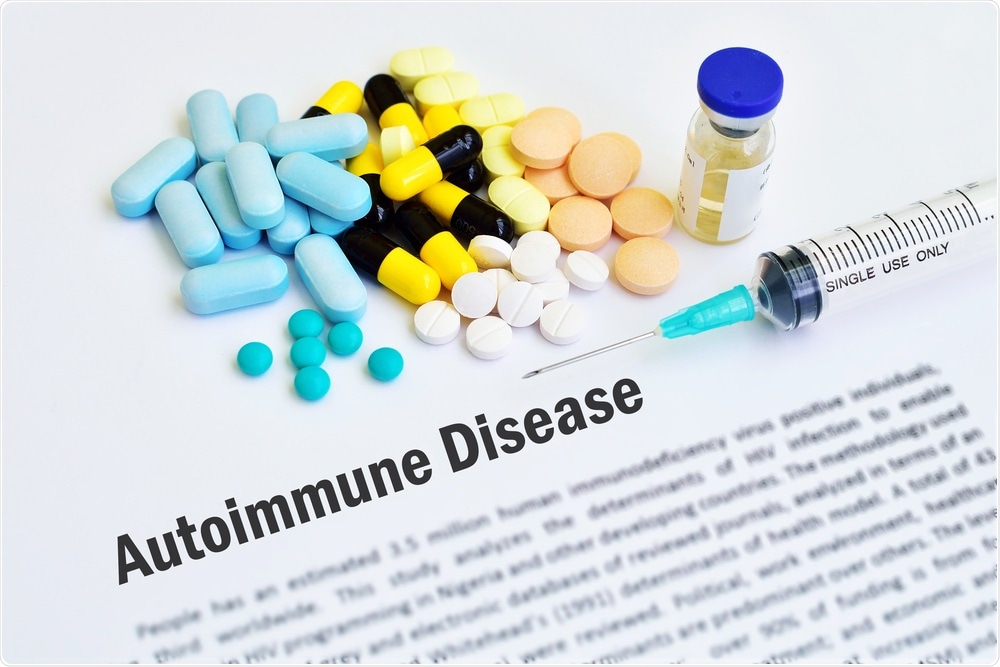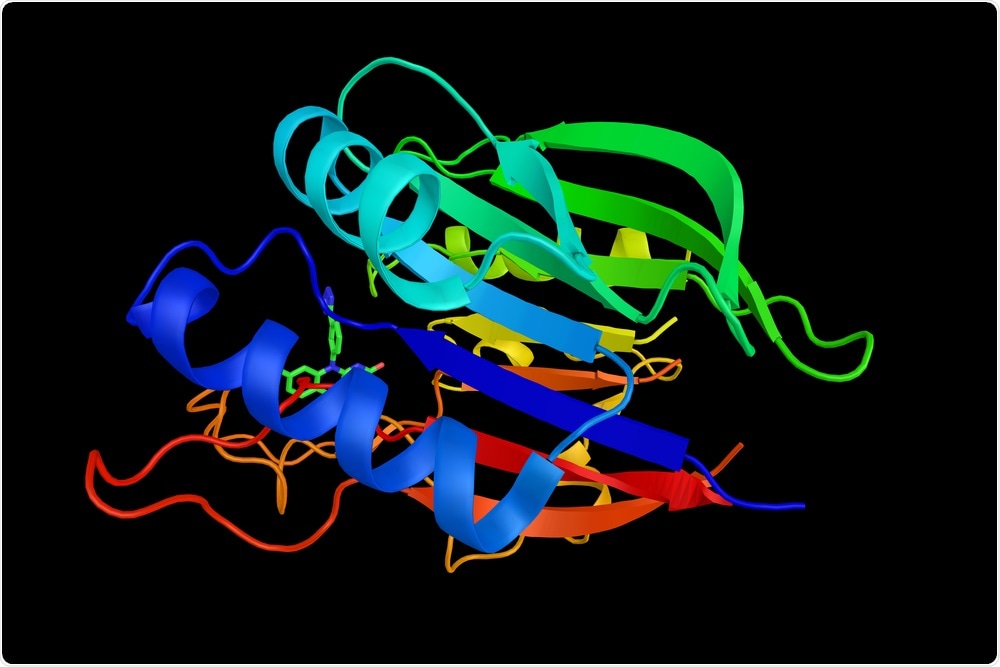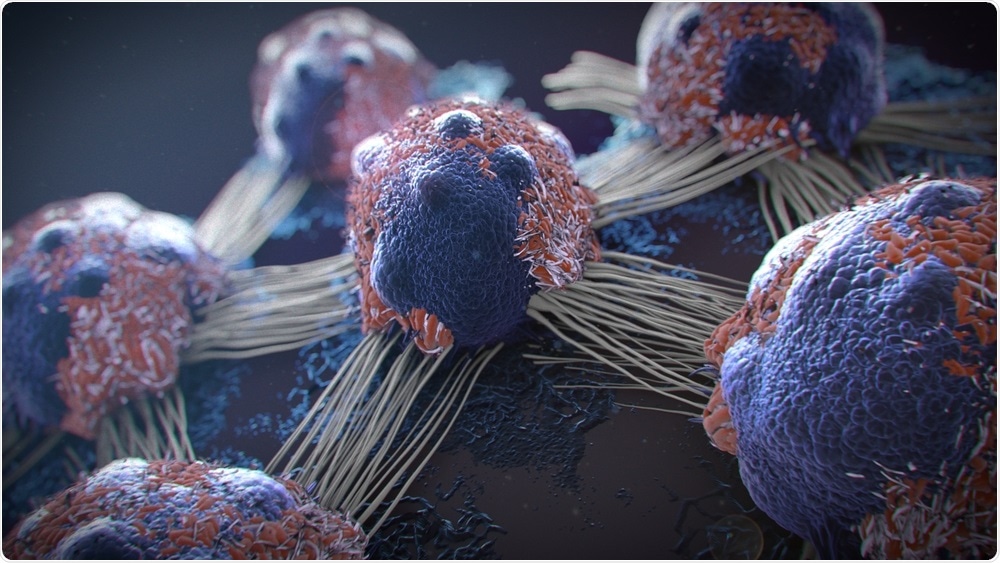Understanding one typically helps to understand the other.

Image Credit: Jarun Ontakrai/Shutterstock.com
What current treatment options are available for autoimmunity and cancer?
There are many varied treatments ranging from steroids, chemotherapy, small molecule targeted drugs as well as biologics such as antibodies, which is my main focus.
What is CD40?
CD40 is a receptor expressed on the cell surface of several immune cell types, known as antigen-presenting cells (APC) such as B cells and dendritic cells.
It is a member of the Tumor Necrosis Factor Receptor Super-Family (TNFRSF) and is essential for the initiation and regulation of adaptive immunity.
The interaction between CD40 and its endogenous ligand CD40L is critical for mounting an effective immune response against exogenous pathogens and naturally arising tumors.
How does its role differ in autoimmunity and cancer?
CD40 over-stimulation is implicated in various autoimmune syndromes such as lupus and colitis as well as transplant rejection, driving B cell and T cell stimulation leading to inappropriate activation, and tissue destruction.
In contrast, CD40 under-stimulation reduces the activation of the APCs and reduces the generation and expansion of CD8+ T cells that control tumors.

Image Credit: ibreakstock/Shutterstock.com
How do these antibody drugs affect the CD40 immune pathway in autoimmunity?
The drugs used in autoimmunity are designed to block the interaction between CD40 and its ligand (CD40 ligand; CD40L). This prevents immune signaling in the APC, reducing immune activation.
In your research you developed an antagonist CD40 antibody that could be used to treat cancer, how did you do this?
We did not develop this antibody – it had already been developed and used in the clinic to treat autoimmunity.
We simply used the V region sequences to make a series of modified antibodies that differed in their Fc domains – displaying human IgG1, 2, or 4 isotypes.
We then explored how these antibodies modified immune responses, showing that the hIgG1 and 4 antibodies reduced immune stimulation whereas the hIgG2 antibody did the opposite and boosted the immune responses.
What else did you learn about the mechanism of CD40 in your research?
We learned how transformative just changing the Fc domain can be for the function of the antibody; converting a “blocking” antibody into a super-active one.
We also highlighted this property of the hIgG2 isotype is FcgR-independent and is related to its unique hinge region which allows disulfide shuffling.
The converted antagonist showed curative antitumor synergy with cell therapy and vaccination strategies.
Why could this antibody drug be more effective at treating cancer than other CD40 antibody therapies currently being used?
Firstly, it was more active at stimulating immune responses in our various assays than the current most active antibody available in the clinic. Moreover, we think the really exciting thing is that it does not require interaction with Fc receptors for its activity whereas other antibodies do.
Fc receptor expression is variable in different people and different tumors which may explain why some people do or do not respond to these drugs.
By generating an antibody-drug that does not require Fc receptors, we hope to be able to get strong responses in more patients.
Do you believe that this antibody could help to transform the lives of many people suffering from cancer? Are there any other conditions that you could apply your research to?
We hope that this drug and others like it could help pave the way for more effective treatments.
We hope that this research could potentially apply to vaccination, as we can also boost antibody responses to foreign antigens with this drug.

Image Credit: Javier Regueiro/Shutterstock.com
What are the next steps that need to be taken before this treatment could be used in hospitals?
First, more extensive experiments to assess how best to deliver the drug. Then, we need to perform the usual early human studies, first assessing safety and finding a safe and effective dose before it can progress to use in patients.
What are the next steps in your research?
We are really interested in WHY this antibody is so active.
What does it do to the receptor? How does it cluster? Is the signaling it evokes qualitatively or quantitatively different?
Where can readers find more information?
- Banchereau, J., Bazan, F., Blanchard, D., Briere, F., Galizzi, J. P., van Kooten, C., Liu, Y. J., Rousset, F., and Saeland, S. (1994). The CD40 antigen and its ligand. Annu Rev Immunol 12, 881-922.
- Beers, S. A., Glennie, M. J., and White, A. L. (2016). Influence of immunoglobulin isotype on therapeutic antibody function. Blood 127, 1097-1101.
- Bennett, S. R., Carbone, F. R., Karamalis, F., Flavell, R. A., Miller, J. F., and Heath, W. R. (1998). Help for cytotoxic-T-cell responses is mediated by CD40 signalling. Nature 393, 478-480.
- Dillon, T. M., Ricci, M. S., Vezina, C., Flynn, G. C., Liu, Y. D., Rehder, D. S., Plant, M., Henkle, B., Li, Y., Deechongkit, S., et al. (2008). Structural and functional characterization of disulfide isoforms of the human IgG2 subclass. J Biol Chem 283, 16206-16215.
- Elgueta, R., Benson, M. J., de Vries, V. C., Wasiuk, A., Guo, Y., and Noelle, R. J. (2009). Molecular mechanism and function of CD40/CD40L engagement in the immune system. Immunol Rev 229, 152-172.
- Lai, J. H., Luo, S. F., and Ho, L. J. (2019). Targeting the CD40-CD154 Signaling Pathway for Treatment of Autoimmune Arthritis. Cells 8.
- Larsen, C. P., and Pearson, T. C. (1997). The CD40 pathway in allograft rejection, acceptance, and tolerance. Curr Opin Immunol 9, 641-647.
- Vonderheide, R. H. (2019). CD40 Agonist Antibodies in Cancer Immunotherapy. Annu Rev Med.
About Professor Mark Cragg
Mark Cragg is a Professor of Experimental Cancer Biology in Cancer Sciences at the Southampton University Faculty of Medicine. He obtained his Ph.D. in 1998 and did his postdoctoral studies in Southampton with Martin Glennie and in Melbourne with Andreas Strasser before starting his own group in 2007.
His research concerns how therapeutics results in tumor regression with a focus on antibodies and small molecules. He has investigated many different therapeutic agents such as rituximab, bexxar, imatinib, gefitinib, cetuximab, and Tarceva and has been involved in the development and understanding of next-generation antibody reagents such as ofatumumab and obinutuzumab, as well as first in class antibodies such as BI-1206.
Throughout the strategy undertaken is highly translational with iterative cycling between in vitro experiments, appropriate in vivo model systems, and primary clinical material.